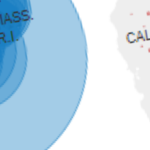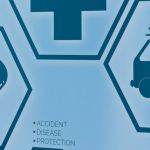The American Ambulance Association wants to remind our members that the deadline to submit your initial report on your use of HHS Provider Relief Funds is fast approaching. Any ambulance provider or supplier that received more than $10,000 in aggregate funds from the first two rounds of General Distribution funding will need to submit a report on their use of such funds by September 30, 2021. This initial report will detail the expenditure of PRF funds through June 30, 2021.
Relevant Background
On March 27, 2020, President Trump signed into law the Coronavirus Aid, Relief, and Economic Security Act (CARES Act). As part of that Act, Congress allocated $100 billion to the creation of a “CARES Act Provider Relief Fund,” which will be used to support hospitals and other healthcare providers on the front lines of the nation’s coronavirus response. An additional $75 billion was allocated as part of the Paycheck Protection Program and Health Care Enhancement Act, with subsequent legislation adding further amounts to this fund. In total, the Provider Relief Fund (PRF) will distribute $178 billion to health care providers and suppliers to fund healthcare-related expenses or to offset lost revenue attributable to COVID-10.
To date, HHS has distributed approximately $148.4 billion through three rounds of General Distribution funds ($92.5 billion) and multiple smaller Targeted Distributions. A portion of the PRF is also being used to reimburse health care providers for the costs of testing, treating, and vaccinating the uninsured.
Summary of Final Reporting Requirements
On June 11, 2021, HHS issued its final PRF Reporting Requirements. Under these new guidelines, health care providers will be required to report for any “Payment Received Period” in which they received one or more PRF payments that, in the aggregate, exceed $10,000. Providers meeting this threshold for any Payment Received Period will report on their use of such funds during the corresponding “Reporting Time Period.”
The following table sets forth the applicable Payment Received Periods and corresponding Reporting Time Periods. The table also sets forth the deadline to use funds received within each Payment Receiving Period.
| Period |
Payment Received Period |
Deadline for use of Funds |
Reporting Time Period |
| 1 |
April 10, 2020 – June 30, 2020 |
June 30, 2021 |
July 1, 2021 – September 30, 2021 |
| 2 |
July 1, 2020 – December 31, 2020 |
December 31, 2021 |
January 1, 2022 – March 31, 2022 |
| 3 |
January 1, 2021 – June 30, 2021 |
June 30, 2022 |
July 1, 2022 – September 30, 2022 |
| 4 |
July 1, 2021 – December 31, 2021 |
December 31, 2022 |
January 1, 2023 – March 31, 2023 |
PRF payments received in the first two rounds of General Distribution funding will fall within the first reporting period. PRF payments received in the third round of General Distribution funding will fall within either the second or third reporting periods, depending on when the funds were actually received.
As a result, ambulance providers and suppliers that received more than $10,000 in the aggregate from the first two rounds of General Distribution funding will need to submit an initial report during the 90-day period starting on July 1, 2021. This initial report will detail all expenditures of PRF funds through June 30, 2021.
Ambulance providers and suppliers that received between $10,001 and $499,999 in aggregated PRF funds during each Payment Received Period are required to report on their use of such funds in two categories: (1) General and Administrative Expenses and (2) Health Care Related Expenses. Ambulance providers and suppliers that received $500,000 or more in aggregated PRF funds during each Payment Received Period will be required to submit more detailed information for each of these general categories.
Specific Instructions Related to Reporting of Lost Revenues
The American Ambulance Association has received numerous questions from members regarding the appropriate methodology to report lost revenues attributable to the coronavirus. Specifically, many members have inquired as to the appropriate methodology for calculating their lost revenues.
HHS has indicated that health care providers must report their lost revenues using one of three methodologies:
- The difference between actual patient care revenues;
- The difference between budgeted patient care revenues and actual patient care revenues; or
- An alternative methodology selected by the provider for estimating lost revenues.
Based on HHS guidance, it appears that the default methodology is to measure the difference between actual patient care revenues for each calendar quarter during the applicable period. The provider will also be asked to further break down patient care revenues by applicable payer. In basic terms, the first methodology will compare: (i) your actual calendar year 2019 patient care revenues to (ii) your actual calendar year 2020 patient care revenues. The A.A.A. suggests that all members start by conducting this basic revenue analysis. To the extent your lost revenues in 2020 equal or exceed (in combination with your increased expenses, if any) the total PRF funds received during the first Payment Received Period, no additional revenue analysis is required.
In some instances, you may find that your actual revenue losses for calendar year 2020 do not fully offset the PRF funds received during the First Payment Received Period. In that event, it may be beneficial to conduct a separate revenue analysis using the budgeted vs. actual methodology. Note: you are only eligible to use this methodology to the extent you had a formal budget approved prior to March 27, 2020.
This methodology is likely to be beneficial to ambulance providers or suppliers that, pre-pandemic, were projecting significant revenue growth in calendar year 2020. For example, consider the case of a hypothetical “ABC Ambulance Service, Inc.” ABC Ambulance had $1 million in patient care revenues in calendar year 2019. However, in November 2019, the company signed an agreement to be the preferred provider of a major hospital system in its service area. As a result, the company was projecting significant revenue growth in calendar year 2020. Specifically, when it created its 2020 budget in December 2019, it projected that its patient care revenues would rise to $1.5 million in 2020.
When the pandemic hit in mid-March 2020, the company saw a significant slowdown in its transport volume. Like many ambulance providers, it saw its transport volume rebound somewhat in the 3rd and 4th quarters of 2020. As a result, it ended the year with $1.2 million in patient care revenues.
A revenue analysis using the default methodology would show an increase in revenues, i.e., its revenues increased by $200,000 over 2019. However, its 2020 actual revenues were $300,000 less than it projected in its 2020 budget. Using this second methodology, the company would be able to claim $300,000 in lost revenues to offset against its PRF funds.
Please note that any ambulance provider or supplier using this second methodology will be required to submit additional documentation with its initial PRF report. Specifically, you will be required to submit a copy of the 2020 budget relied upon to show the lost revenue, together with an attestation from its CEO, CFO, or other authorized official attesting to the fact that this budget was formally established prior to March 27, 2020.
HHS will also permit ambulance providers or suppliers to utilize an alternative methodology created by the entity for calculating their lost revenues. However, to utilize an alternative methodology, the provider or supplier will be required to submit additional documentation explaining not only the methodology, but also the justification for why this methodology was reasonable. HHS has indicated that providers or suppliers electing to use an alternative methodology will face an increased risk of audit. As a good rule of thumb, the use of an alternative methodology is likely to limited to situations where the EMS agency’s business is extremely seasonal, or where there was some major change in their operations during the 2020 calendar year (e.g., a partial sale of the company, a large acquisition, etc.).
Further Information Related to PRF Reporting
HHS updated its instructions for how ambulance providers and suppliers should complete their PRF Reporting obligations. These updated instructions start on Page 4 of the Revised Reporting Requirements.
HHS also recently updated its Frequently Asked Questions (FAQs) associated with the PRF Reporting Program.
















